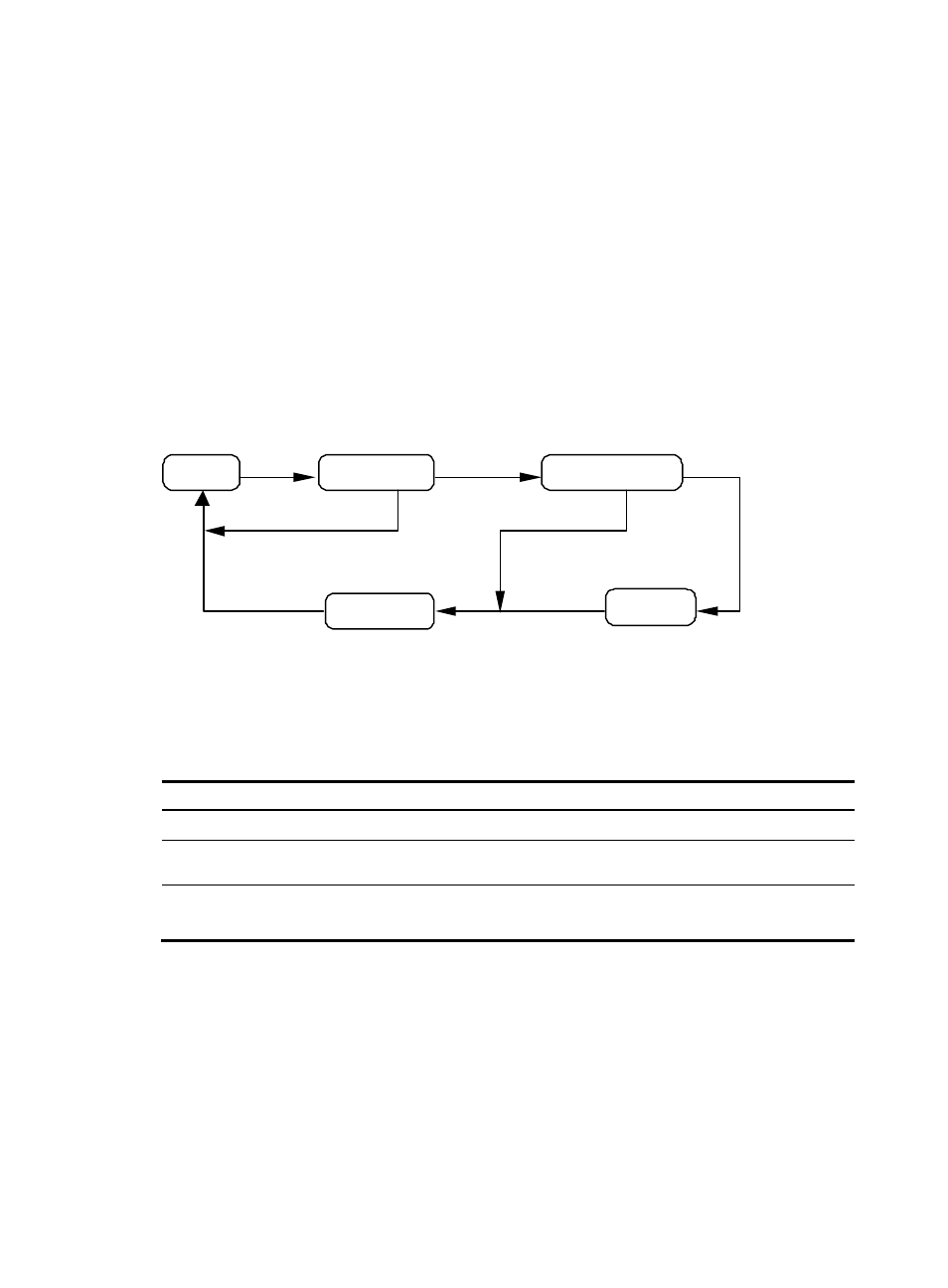Performing general ppp configurations – H3C Technologies H3C SecPath F1000-E User Manual
Page 138

113
2.
If the authentication (the remote verifies the local or the local verifies the remote) is configured, the
PPP link goes to the Authenticate phase, where PAP, CHAP, MS-CHAP, or MS-CHAP-V2
authentication is performed.
3.
If the authenticatee fails to pass the authentication, the link goes to the Terminate phase, where the
link is torn down and LCP goes down. If the authenticatee passes the authentication, the link goes
to the Network phase. In this phase, NCP negotiation is performed, the LCP state remains Opened,
and the state of IP Control Protocol (IPCP) is changed from Initial to Request.
4.
NCP negotiation supports the negotiation of IPCP, through which the IP addresses of both sides
can be determined. NCP negotiation also determines and configures the network layer protocol to
be used. Note that a PPP link can carry a network layer protocol only after the NCP negotiation
succeeds.
5.
After the NCP negotiation is performed, the PPP link remains active until explicit LCP or NCP
frames close the link, or until some external events take place (for example, the intervention of a
user).
Figure 61 PPP link phases
For more information about PPP, see RFC 1661.
Performing general PPP configurations
Step Command
Remarks
1.
Enter system view.
system-view
N/A
2.
Create a virtual template (VT)
interface and enter its view.
interface virtual-template number N/A
3.
Set the polling interval.
timer hold seconds
Optional.
10 seconds by default.
Dead
Authenticate
Terminate
Establish
Network
UP
OPENED
FAIL
FAIL
DOWN
CLOSING
SUCCESS/NONE
- H3C SecPath F5000-A5 Firewall H3C SecPath F1000-A-EI H3C SecPath F1000-E-SI H3C SecPath F1000-S-AI H3C SecPath F5000-S Firewall H3C SecPath F5000-C Firewall H3C SecPath F100-C-SI H3C SecPath F1000-C-SI H3C SecPath F100-A-SI H3C SecBlade FW Cards H3C SecBlade FW Enhanced Cards H3C SecPath U200-A U200-M U200-S H3C SecPath U200-CA U200-CM U200-CS H3C SecBlade LB Cards H3C SecPath L1000-A Load Balancer
